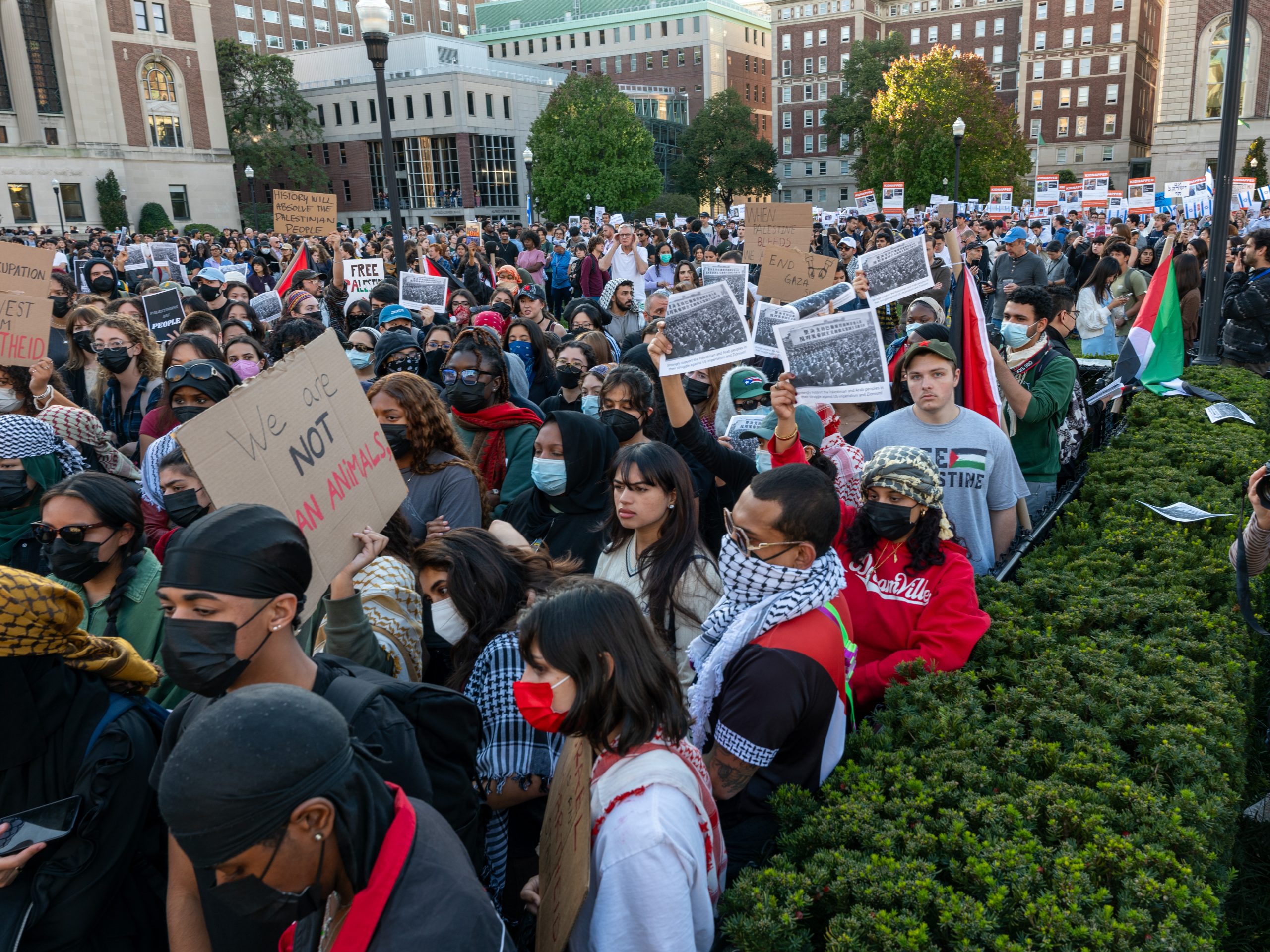At the Democratic National Convention, the focus has been heavily on optimism and future hopes, with notable moments including House Minority Leader Hakeem Jeffries’s enthusiastic support for Kamala Harris. However, this cheerful atmosphere contrasts sharply with the grim reality in Gaza, where the Biden administration’s policies are associated with severe suffering.
The stark juxtaposition between the convention’s celebratory tone and the distressing news from Gaza has not gone unnoticed, leaving some delegates and observers troubled by the disconnect.
The convention’s handling of the Gaza issue has been criticized for its lack of substantial attention. A panel on Palestinian human rights did take place, featuring Dr. Tanya Haj-Hassan, who spoke about her experiences treating patients in Gaza. Despite the panel’s importance, it was not featured prominently.
Instead, more spotlight was given to speakers like the parents of an Israeli-American hostage, highlighting a perceived disparity in how Palestinian suffering is being addressed at the convention.

DNC’s Optimism Contrasts with Gaza Suffering Sparking Criticism and Protests Over Palestinian Representation
Efforts to include Palestinian voices on the main stage were also met with resistance. The Uncommitted National Movement had advocated for Palestinian American speakers to be given a platform, stressing the need for a balanced representation of suffering.
However, by Wednesday evening, it became clear that these requests were denied, leading to a protest by uncommitted delegates, including notable figures like Ilhan Omar and Alexandria Ocasio-Cortez, who staged a sit-in to express their dissatisfaction.
The convention’s refusal to include Palestinian voices has had repercussions. Muslim Women for Harris, a group that had previously supported Kamala Harris, decided to disband and withdraw their support, criticizing both Harris and the Democratic National Committee (DNC) for their perceived lack of empathy towards Palestinians.
This response underscores a growing frustration with the Democratic leadership’s approach to the Gaza crisis and its impact on their base.
In a broader context, the week also featured stories about other forms of activism and notable events. From older women engaging in protest and community activism to individuals like Jenny Paterson taking unconventional actions like filling potholes, these stories reflect a range of grassroots efforts and personal commitments to change.
Meanwhile, the late Queen Elizabeth II’s candid thoughts on Donald Trump and Tanya Smith’s audacious criminal career offer intriguing glimpses into public figures and their stories.
Finally, the week also highlighted some quirky and lighter moments, such as Alicia Silverstone’s questionable decision to eat toxic fruit and the discovery of a real groundhog among arcade prizes in Pennsylvania. These anecdotes, while less serious, offer a contrast to the more weighty issues discussed, reminding us of the diverse and sometimes surprising nature of current events.
